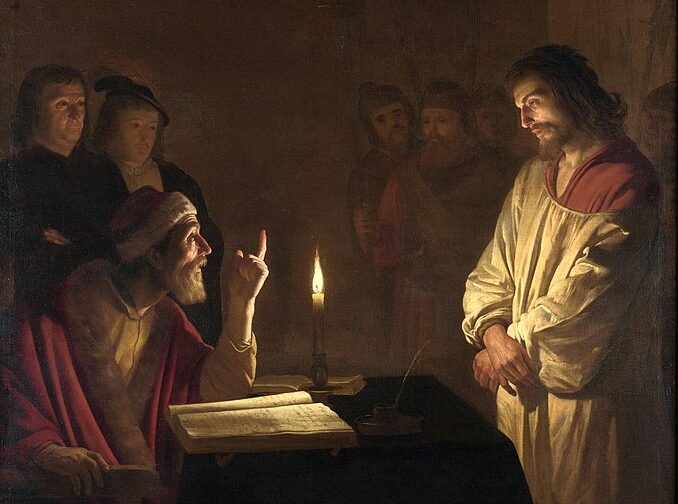Isn’t it frustrating when people choose to ignore the evidence simply because they don’t want to know? I’m sure this has happened to you; it happened to me recently.
When questioning something that had happened and evidence was presented the person went right on talking as if nothing had been said or presented. How can people totally ignore the evidence when it is plain?
This also happened to Jesus – in fact, it led to a plot to kill him that resulted in his crucifixion by the Romans. Notice what happened just after Lazarus was raised back to life from the dead.
“Many of the Jews, therefore, who had come with Mary and had seen what Jesus did believed in him. But some of them went to the Pharisees and told them what Jesus had done. So the chief priests and the Pharisees called a meeting of the council and said, ‘What are we to do? This man is performing many signs. If we let him go on like this, everyone will believe in him, and the Romans will come and destroy both our holy place and our nation.’” (John 11:45-48 NRSVUE)
There was no way to deny what Jesus was doing – he was performing many signs. These miraculous signs pointed to who he was. He had just raised someone from the dead, someone who had been dead for four days (John 11:39). There were witnesses to both Lazarus having died and that he had come back to life. There was no denying it. And who could raise the dead if they weren’t from God?
Despite the evidence the Jewish leaders rejected Jesus. They were more concerned about their political position and how Jesus might put that in jeopardy. Keep in mind that the priesthood was no longer hereditary but a political appointment by Rome. Politics was governing what they believed rather than God’s word. Rather than accepting who Jesus was and following him, they rejected him in spite of the evidence in front of them. Their concern was what they were going to do about him!
“But one of them, Caiaphas, who was high priest that year, said to them, ‘You know nothing at all! You do not understand that it is better for you to have one man die for the people than to have the whole nation destroyed.’ He did not say this on his own, but being high priest that year he prophesied that Jesus was about to die for the nation, and not for the nation only, but to gather into one the dispersed children of God. So from that day on they planned to put him to death.” (John 11:49-53)
If Caiaphas had only known what he was saying! He thought he was saying it was better for Jesus, one man, to die than to risk the wrath of Rome. But he did not realise that by putting Jesus to death he would be fulfilling what the Scriptures said about the Messiah and that by his death he would bring all people together as one to serve God. The death of Jesus would bring salvation to all people. And ultimately it brought Rome back forty years later to destroy the nation. If he had only known what he was saying!
What about us? Do we ignore the evidence in front of us if it doesn’t align with what we want to believe? Do we allow our politics to determine what we believe more than God’s word? When we do these things we are doing what Caiaphas and the Jewish leaders did to condemn Jesus.
May we always be willing to look at the evidence and to listen to God’s word, allowing our lives to be influenced by what we see God has revealed.
Painting by Gerard van Honthorst (1592-1656) – Christ before the High Priest – public domain.
Readings for next week: John 10-14
- Jesus our Passover Lamb - 2026-01-23
- Growing in faith despite difficult circumstances - 2026-01-16
- God’s temple - 2026-01-09
